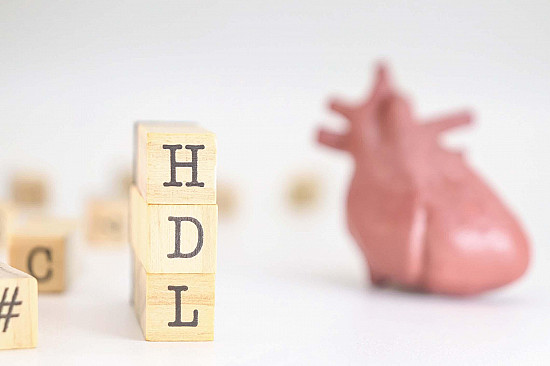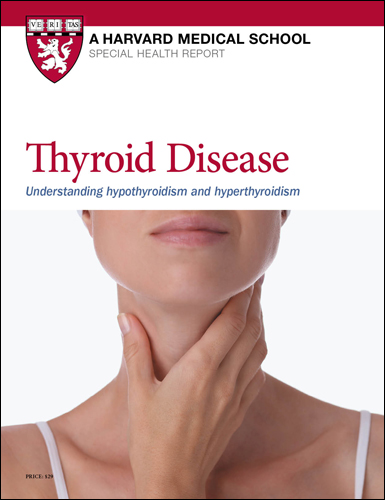Thyroid hormone: How it affects your heart
|
Image: Sciero/Getty Images The thyroid gland, which wraps around the windpipe, releases hormones that have wide-ranging effects on the body. |
Too little or too much of this crucial hormone can contribute to heart problems.
Located at the base your throat, the butterfly-shaped thyroid gland releases hormones that affect every organ in your body—especially your heart. Thyroid hormone influences the force and speed of your heartbeat, your blood pressure, and your cholesterol level. As a result, a malfunctioning thyroid gland can cause problems that masquerade as heart disease or make existing heart disease worse.
An estimated 6% of people in the United States have thyroid disease. Most of them—about 80%— have an underactive thyroid, or hypothyroidism. When thyroid levels drop, all the systems in the body slow down, triggering a range of symptoms that include fatigue, weight gain, cold intolerance, constipation, and dry skin. But these symptoms are very common in people as they grow older, including those with normal thyroid levels.
More than half of people with normal thyroid function have symptoms of hypothyroidism. In addition, some people over age 60 with low thyroid levels don't have the classic symptoms. That's why recognizing hypothyroidism can be particularly tricky, he adds. Certain factors make people more likely to have thyroid problems.
Hypothyroidism: The cardiac connection
Hypothyroidism can affect the heart and circulatory system in a number of ways. Insufficient thyroid hormone slows your heart rate. Because it also makes the arteries less elastic, blood pressure rises in order to circulate blood around the body. Elevated cholesterol levels, which contribute to narrowed, hardened arteries, are another possible consequence of low thyroid levels.
Another noncardiac symptom—muscle aches—may also be relevant. Muscle aches can be a symptom of hypothyroidism as well as a side effect of cholesterol-lowering statin medications, a condition known as statin-related myalgia. In fact, research suggests that hypothyroidism is more common in people who can't tolerate statins. Sometimes treating hypothyroidism helps relieve statin-related myalgia.
Hyperthyroidism: Excess thyroid hormone
The opposite problem, hyperthyroidism, or too much thyroid hormone, is far less common, affecting less than 1% of the population. But it, too, can harm the heart.
The classic symptoms include sleeplessness, heat intolerance, excess sweating, weight loss, extreme hunger, and loose bowels. Excess thyroid hormone also causes the heart to beat harder and faster and may trigger abnormal heart rhythms. One is atrial fibrillation, a disorganized rhythm in the heart's upper chambers. A related symptom is palpitations, a sudden awareness of your heartbeat. People with hyperthyroidism may also have high blood pressure. In a person with clogged, stiff heart arteries, the combination of a forceful heartbeat and elevated blood pressure may lead to chest pain or angina.
Who's at risk for thyroid problems?The following factors affect your odds of having a thyroid problem:
|
Disclaimer:
As a service to our readers, Harvard Health Publishing provides access to our library of archived content. Please note the date of last review or update on all articles.
No content on this site, regardless of date, should ever be used as a substitute for direct medical advice from your doctor or other qualified clinician.

















